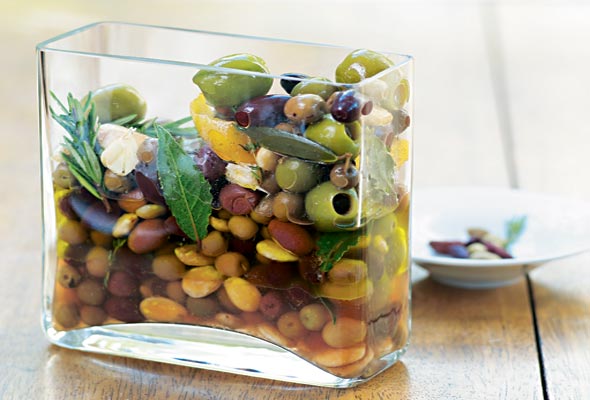How the Agromafia may be fooling you
January 6, 2016 by Darcie
When you hear the term Mafia, you might think of The Godfather, but you probably don’t think about your pantry. Yet a recent 60 Minutes story shows us that the mafia is into food in ways you might not realize. Mafia counterfeits of olive oil, wine and cheese are on the rise and are estimated to be a $16 billion-a-year enterprise. The Italians call it “Agromafia”, and it’s an affront to a country where cuisine is considered a national treasure. Just last month, police in Italy confiscated 7,000 tons of counterfeit olive oil, much of it bound for the US, where up to 80% of oils labeled as extra virgin might be fake.
So how does olive oil fraud work? Journalist Tom Mueller, who has lived in Italy for 20 years and first wrote about olive oil fraud in 2007 for The New Yorker, explained the process: “You in many cases are getting lower grade olive oil that has been blended with some good extra virgin olive oil…you’re sometimes getting deodorized oil. They blend it with some oil that has some character to give it a little color, a little flavor…and they sell that as extra virgin. It’s illegal – it happens all the time.” He notes that there is big money in counterfeit oils: the profit margin can be three times better than cocaine.
You can find advice on ways to test whether what you get is the real deal, but they don’t always work. A taste test might not reveal the authenticity of the oil, because flavorings can be added to inferior oils that will food many palates. Another way of testing the oil that is commonly recommended is to put it in the refrigerator and note what happens. Since exta-virgin olive oil is comprised of mostly monounsaturated fats, it should become quite thick and cloudy. But this is not a fail proof way to tell if your olive oil is fake. Some olive oils are “winterized”, meaning the solidifying bits in them are strained out after chilling just so the oil won’t get cloudy when cold. Conversely, the oil could be cut with low-grade oils from other plants so it would get cloudy in the fridge because it is partly made of extra-virgin oils.
Looking at labels can provide some confidence about the origins of the oil. Though not always a guarantee, the terms PDO (protected designation of origin) and PGI (protected geographical indication) should indicate the authenticity of the oil. Buying from a reputable source is also key.
Photo of Herb-marinated olives from indexed blog Leite’s Culinaria by
Categories
- All Posts (6940)
- Antipasto (2135)
- Author Articles (247)
- Book News (935)
- Cookbook Giveaways (983)
- Cookbook Lovers (257)
- Cooking Tips (109)
- Culinary News (299)
- Food Biz People (552)
- Food Online (791)
- Holidays & Celebrations (272)
- New Cookbooks (149)
- Recipes (1500)
- Shelf Life With Susie (231)
- What's New on EYB (133)
Archives
Latest Comments
- Pamsy on What foods do you look forward to the most for each season?
- Pamsy on How cookbooks can help build resilience
- DarcyVaughn on Danube Cookbook Review and Giveaway
- hettar7 on JoyFull – Cookbook Review & Giveaway
- eliza on What foods do you look forward to the most for each season?
- kmwyman on Rooza by Nadiya Hussain – Cookbook Review and Giveaway
- Maryd8822 on The Golden Wok – Cookbook Giveaway
- Dendav on Danube Cookbook Review and Giveaway
- sanfrannative on Rooza by Nadiya Hussain – Cookbook Review and Giveaway
- darty on Danube Cookbook Review and Giveaway